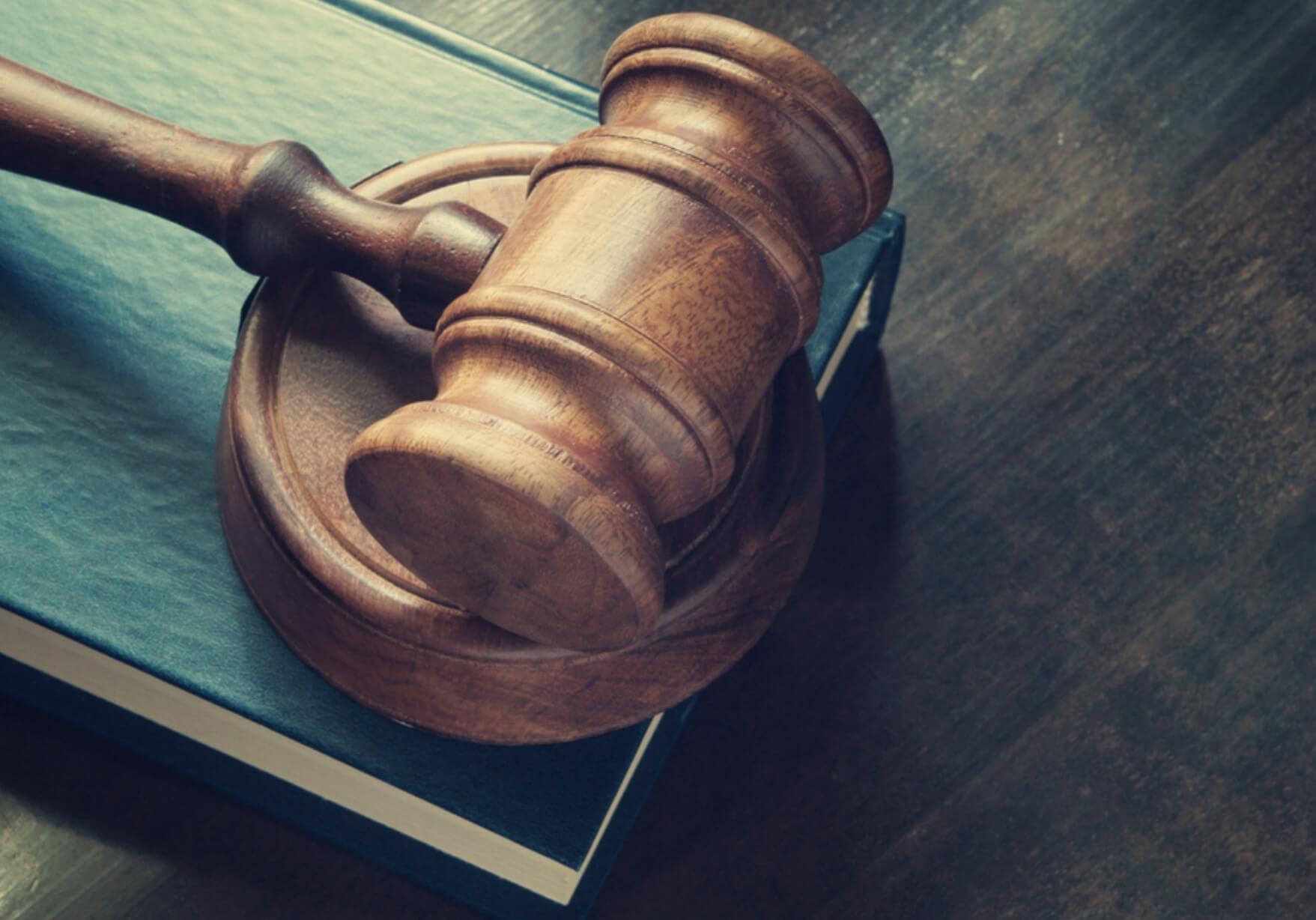
When speaking with solicitors, it can often mean that there are legal terms referenced throughout your case which may seem complicated or unfamiliar.
Our personal injury solicitors are here to help with this useful A-Z of legal terms with their definitions. These are phrases and keywords which you may hear used throughout your communications with our legal team.
If there is anything further we can help with, please don’t hesitate to get in touch with us.
Accept an Offer
If you are the claimant in a personal injury claim, you may receive an offer to settle your claim from the Defendant at any time during the lifetime of the claim. Your solicitor will advise you on whether they think the offer is reasonable or not, but ultimately it is your choice as to whether you wish to accept an offer, to settle your claim
Acknowledgement of Service
An Acknowledgement of Service is the formal document the Defendant sends to the Court to let them know they’ve received your personal injury claim. In it, the Defendant states whether they accept liability or intend to defend your claim. They must file their Acknowledgement of Service, or a Defence, within 14 days of receiving your claim.
Adjournment
An adjournment is the postponement of the trial of your personal injury claim or any other hearing relating to your case. Either party can request an adjournment, and it is up to the Court to decide whether an adjournment is necessary to ensure fairness.
Admission
An admission of liability is where the Defendant admits the whole or part of your claim. Unless the admission relates to your entire claim, you still need to prove the other elements to succeed. Even if an admission relates to overall liability, the issue of how much compensation you are entitled to must still be addressed.
Affidavit
An affidavit is a formal written declaration made under oath. You can use affidavits to support your assertions regarding your accident and ask any witnesses to do likewise. If you give false evidence in an affidavit, you will be in contempt of Court and may be imprisoned.
After the Event Insurance (ATE)
ATE insurance covers the Defendant’s legal costs if your claim is unsuccessful. It is usually used alongside a no win, no fee agreement, to ensure you are covered for any eventuality.
Allocation
Allocation refers to the process whereby the Court decides which ‘track’ your personal injury claim should be allocated to. Each track has different rules regarding issues such as how much evidence you can produce and costs recovery. The Court will decide on a track based on several matters, including the value and complexity of your claim.
Alternative Dispute Resolution (ADR)
ADR is the term given to any form of dispute resolution that does not involve Court proceedings. Parties to a personal injury claim are expected to engage in ADR and can be penalised on costs if they unreasonably refuse to do so. Most personal injury cases are settled through ADR.
AMRO (Association of Medical Reporting Organisations)
The AMRO represents several Medical Reporting Organisations, who provide expert reports assessing a Claimant’s injuries for use in personal injury cases. The AMRO offers best practice guidance to its members and streamlines the recovery of the costs incurred in obtaining a medical report to support your claim.
Appeal
If your personal injury claim is unsuccessful, you may be able to appeal the decision. You can usually only do so if your appeal has a good chance of success or for another compelling reason, such as the case being of significant public interest.
Application
You can use an ‘Application’ to ask the Court to authorise or order something. An example of an Application sometimes made in personal injury claims is a ‘Pre-Action Disclosure Application’, whereby you ask the Court to order the Defendant to provide you with documents in their possession, which may help you to decide whether to issue Court proceedings.
Arbitration
Arbitration is a way of resolving your personal injury claim without going to Court. If your case is suitable for arbitration, and you and the Defendant agree to use it, you jointly refer the matter to an impartial third party, the arbitrator, to consider the issues and make a binding decision.
Balance of Probabilities
The ‘balance of probabilities’ is the standard of proof applied in personal injury cases. It means that, for your personal injury claim to succeed, you must convince the Judge that, based on the evidence, it is ‘more likely than not’ that the Defendant’s negligence caused your accident.
Barrister
A barrister is a specialist legal advisor who presents your case in Court in the unlikely event it goes to trial. Whilst we will do the majority of the work to prepare your case, we may seek a barrister’s input to draft complex documents or to advise on how much your claim is worth particularly where the claim involves complex or unusual legal principles.
Before the Event Insurance (BTE)
Before the Event Insurance is an insurance policy you already had in place before your personal injury claim arose. It may cover both your own legal costs, and the Defendant’s costs if your claim is unsuccessful, up to the amount stated in your policy documents.
Breach of Duty
Breach of duty is one of the requirements of the law of negligence, which most personal injury claims are based on. To satisfy the requirement, you must show that the Defendant did not take reasonable care to avoid the harm or loss you suffered.
Case
Your ‘case’ is your personal injury claim against someone who has caused you harm. We will assess the strength of your case based on the evidence and advise on how best to proceed. There are many types of personal injury cases, including those arising from road traffic accidents, accidents at work and accidents in public places.
Causation
Causation is a key element of personal injury claims. To succeed in your claim, it is not enough to show that the Defendant acted negligently; you must prove that their negligence directly caused your injuries. To establish causation in your case, we will gather various types of evidence, including expert reports and your medical records.
Chambers
Unlike solicitors who work for a firm, barristers are self-employed. However, they group together with other barristers specialising in the same practice area to form a ‘Chambers’. The members work out of the same building – also known as ‘Chambers’ – and pay a percentage of their income to their Chambers, which are managed by ‘Barrister’s clerk’ in return for shared services such as marketing, billing and administration.
Civil case
Litigation cases are classified as either ‘criminal’ or ‘civil’. Criminal cases involve actions that have a negative impact on society overall, whereas civil cases deal with disputes between individuals or organisations. While criminal law seeks to punish a Defendant, civil law seeks to compensate the victim who has suffered loss or harm due to someone’s wrongdoing (in a non-criminal sense). Personal injury claims are civil cases.
Claimant
When you bring a personal injury case against someone, you become known as the ‘Claimant’ in the court proceedings. The other party (who you claim owes you compensation) becomes known as the ‘Defendant’. As the Claimant, the burden is on you to prove that the Defendant’s actions caused your personal injury, and that you are entitled to compensation.
Claim Notification Form
Most personal injury claims valued at £25,000 or less are started by completing a ‘Claim Notification Form’ through an online portal. The Form is then sent to the Defendant or their insurers. It contains crucial information, such as a description of your accident and injuries. If the Defendant disputes liability, the claim exits the portal and is dealt with by personal injury litigation rules.
Claims Management Companies (CMC)
Claims management companies, also known as CMCs, claim to assist individuals in making compensation claims. However, they are not personal injury specialists and do little more than pass your details to solicitors’ firms for a fee. You gain minimal, if any, benefit from using a CMC; instead, you should save time by heading straight to a firm of specialist personal injury solicitors who will assess your case, advise on the best way forward and, in most cases will handle your claim on a No Win No fee basis.
Claims Portal
The Claims Portal is an online system designed to deal with personal injury claims with a value of below £25,000. It aims to minimise costs by processing low-value cases quickly and efficiently. The system comprises three stages, each governed by strict time limits. If the Defendant disputes your claim, it leaves the portal and follows the general personal injury claims process.
Client
When you instruct us to pursue your personal injury claim on your behalf, you become our client. As your solicitors, we owe you a range of duties under our professional code of conduct and by law. For example, we owe you a duty of care, meaning we must use reasonable care and skill when handling your case, provide a competent service and act in your best interests at all times.
Clinical Negligence
Medical professionals owe their patients a duty of care. For example, they must adequately investigate your symptoms, carefully review test results and take a proper medical history. If they breach their duty, and if you suffer harm as a result, you may have a claim against them for clinical negligence.
Compensation Recovery Unit (CRU)
The CRU is responsible for ensuring that any benefits you received due to your accident – such as income support and mobility allowance – are repaid to the taxpayer if you win your claim. The CRU will collect the sums from the Defendant.
Criminal Injuries Compensation Authority (CICA)
The Criminal Injuries Compensation Authority is a Government Body set up to compensate innocent victims of violent crime. You must meet a series of specific eligibility criteria to claim under the scheme, including that you have suffered an injury due to a violent crime and you reported the incident to the police. The deadline to apply is two years following the incident.
Cross-examination
Most personal injury claims are settled before trial. However, if your case does not, part of the hearing will involve the parties’ legal representatives cross-examining the other party and their witnesses. The aim of cross-examination is to discredit the witness and cast doubt on their assertions.
Damages
Damages is the legal term for the compensation you receive when you win your personal injury case. There are two types of damages: Special and General. Special damages make good any financial losses, such as the medical costs you have incurred. In contrast, general damages compensate you for your pain, suffering and loss of amenity (the injury aspect of your claim).
Date of Knowledge
The date of knowledge is when you became aware of the injury caused by the Defendant’s negligence. You have three years from the date of knowledge to bring your personal injury claim. Usually, the date of knowledge is the same as your accident date, but it can sometimes be later if symptoms are delayed or the injury is ‘hidden’.
Asbestos disease claims are a perfect example of where the date of knowledge that you have a claim for asbestos disease compensation may only become apparent many years after you were exposed to asbestos..
Default Judgment
If the Defendant fails to acknowledge service of your personal injury claim or file their defence within 14 days, you can apply to the Court for Default Judgment. If the Court grants Default Judgment, you have won the liability aspect of your case, so you do not need to prove the Defendant’s fault. However, the Judge still needs to decide how much compensation you are entitled to.
Defective Premises
The Defective Premises Act 1972 imposes a duty of care on landlords and those building or working on a property. If they breach their duty, rendering the building dangerous, and if you suffer injury as a result, you may be able to bring a personal injury claim against them.
Defence
If the party against whom you bring your personal injury claim wishes to dispute your case, they must serve a defence within 14 days of receiving your claim. Examples of the types of defences common in personal injury claims include that the Defendant did not owe you a duty of care, their actions did not cause the accident, or the accident did not cause your injuries.
Defendant
When you issue a personal injury claim, you become known as the Claimant and the other party, the Defendant. Since most Defendants have insurance policies to deal with the claim, such as employer’s liability insurance, public liability insurance or motor insurance, the Defendant’s insurer will usually defend the claim on behalf of their client and pay any compensation.
Disbursements
Disbursements are the out-of-pocket expenses we incur on your behalf during your personal injury claim. They can include Court fees, barrister’s fees, expert witness fees, and the cost of obtaining medical reports. Our no-win fee agreement does not cover disbursements. However, we may pay some of the disbursements for you and recover them from the Defendant’s insurer when you win.
Disclosure
Disclosure refers to the process by which the parties in personal injury proceedings provide each other with copies of all documentation relevant to the claim, which are or have been within their control. Crucially, the obligation includes documentation that both helps and harms your case. Examples of documents you may need to disclose include medical reports, other expert reports, your accounts if self-employed or wage slips (where you are claiming loss of earnings). Sometimes, disclosure can consist of bundles of documents in large claims.
Directions
If the Defendant defends your personal injury claim, the Court will draw up directions detailing the steps the parties need to take up to trial and when they need to be done. Directions are essentially a timetable and include matters such as expert evidence, disclosure, and exchanging witness statements.
Directions Questionnaires
In a directions questionnaire, the parties set out how they believe the case should proceed. They will provide details relating to essential matters such as their witnesses, expert evidence, and how long they expect the trial to last. The Court will consider the Directions Questionnaires when deciding on the timetable for the claim.
Duty of Care
Duty of care is a legal duty to protect others from coming to harm. To succeed in your personal injury claim, you must prove that the Defendant owed you a duty of care, breached their duty, and caused you harm as a result. Many people or organisations we interact with, including our employers, doctors, and other road users, owe us a duty of care.
Employers Liability
‘Employers liability’ refers to an employer’s legal duty to take reasonable steps to ensure their employees’ health and safety whilst at work and, in turn, their obligation to compensate employees for injuries or illness sustained as a result of that breach that duty of care. If an injured employee sues the company for personal injury compensation and succeeds, the company’s employer’s liability insurers usually pay the compensation award. The Employers’ Liability (Compulsory Insurance) Act 1969 makes it compulsory for almost all employers to have a policy of employers’ liability insurance in place.
Enforcement Proceedings
If you win your personal injury claim but the Defendant is not insured and cannot or will not pay the compensation awarded, you can take out enforcement proceedings to force the Defendant to pay the compensation owed to you. There are various ways to enforce your Judgment, including using court bailiffs and asking the court to take money directly from the Defendant’s salary to go towards paying what you are owed over a period of time.
Examination in Chief
In the often unlikely event that your personal injury claim reaches trial, your witnesses will begin giving their evidence by answering questions your barrister asks. This is known as their ‘examination in chief’ and is an opportunity for your witnesses to confirm or clarify the evidence given in their witness statements. Compare this with a ‘cross-examination’, which in this instance will be where the Defendant’s barrister will ask your witnesses questions.
Expert
Experts are used in court proceedings to explain issues outside the Judge’s expertise. A medical expert is frequently the primary type of expert used in personal injury cases. Their evidence assists the Judge in understanding your diagnosis, prognosis, and the extent of your injuries. Medical evidence is fundamental in determining your case’s outcome and the compensation you will receive.
Fast Track
All personal injury claims get allocated to a ‘track’ which dictates the procedure to be followed until trial. The fast track is the middle track and deals with relatively straightforward claims valued at £25,000 or less. Most personal injury claims are allocated to the fast track.
Fees
Solicitors charge fees for the work they do for their clients. Most of the time, clients pay their solicitor’s fees as they go along. However, Mooneerams are purely personal injury solicitors and act for most clients on a ‘no-win, no-fee’ basis. You don’t pay anything until you win your case when you pay the amount agreed beforehand and specified in your no-win, no-fee agreement.
Fee Remission
When you issue your personal injury claim, you will need to pay a court fee, the amount of which will depend on your claim’s value. If you are on low income and have little to no savings, you may be entitled to government help to pay the court fee. This is known as’ fee remission’.
Funding
Funding refers to how you will cover the costs of your personal injury claim. Several methods of funding might be available to you, including legal expenses insurance, and a no-win, no-fee arrangement. We act for most of our clients on a no-win, no-fee basis, which means you will not pay us anything unless you win your case.
Full and Final Settlement
Most personal injury claims are resolved on a ‘full and final’ settlement basis. This means that the compensation you negotiate with the Defendant, or are awarded by the court, will be the entire amount you receive in respect of your injuries. Therefore, it is important to anticipate any potential future losses and include those in your damages claim.
Filing
Filing is the process of lodging documentation relating to your claim at court. When making directions, the Judge will decide what documentation must be filed on your behalf and by what date. Examples of the documents we might need to file include a pre-trial checklist and a skeleton argument.
Fundamental Dishonesty
A defendant can raise the issue of ‘fundamental dishonesty’ if they believe that you have been dishonest about some or more aspects of your claim, and your dishonesty goes to the root of your case. If the court accepts that you have been fundamentally dishonest, your claim will be dismissed, you may have to pay the entire costs of the litigation, and you may face criminal sanctions.
General Damages
General damages form part of the compensation you will receive when your claim succeeds and are intended to compensate you for the pain, suffering and loss of amenity (PSLA) caused by the accident, where ‘loss of amenity’ refers to the effect your injuries and have had on your daily life.
Going to Court
Your claim is said to be going to court if it proceeds to trial. Whilst we will prepare your case on the basis that it will go to court, in reality, very few personal injury claims get that far. Instead, over 90% of the disputes are settled by the parties through negotiation or, in some limited cases, alternative dispute resolution.
Heads of Damage
Heads of Damage are the categories of damage you have incurred as a result of your personal injury. Personal injury claims usually comprise two main heads of damage: Special and General. Special damages make good your financial losses, such as loss of earnings. General damages compensate you for your pain, suffering and loss of amenity.
Hearing
Hearings are any formal proceedings that take place in court before a judge, at which both parties are usually represented. If your case does not settle during the litigation process, you and the Defendant will attend a hearing at which the Judge will decide the outcome.
High Court
Personal injury claims fall under civil law, so the County Court or High Court deals with them. The High Court is the third highest court in the UK civil court hierarchy and deals primarily with complex, high-value claims. The County Court handles most personal injury cases, but the High Court can hear those worth over £50,000.
Health and Safety Executive (HSE)
The Health and Safety Executive is responsible for regulating workplace safety. If you have an accident at work, your employer may have a duty to report it to the Health and Safety Executive. In some cases, the HSE may investigate the incident and even prosecute your employer. The HSE investigation is entirely separate from your personal injury claim.
Indemnity
Many personal insurance defendants have insurance policies under which their insurance company gives an indemnity against any costs and damages the Defendant has to pay in relation to personal injury claims. So, in most cases, the insurance company pays the compensation awarded to you and your legal costs.
Independent Witness
An independent witness is someone who saw your accident but has no connection to anyone involved (and so is likely to give honest evidence of what they saw). Independent witness evidence can be crucial to the outcome of your personal injury claim, so we will contact anyone who may have witnessed the incident and ask them to provide a statement and, if necessary and their evidence helps your case, require them to give evidence at court.
Infant Approval Hearing
In personal injury cases involving children, a judge must approve any settlement offer made by the Defendant before it can be accepted in settlement of the claim. This is done by means of an infant settlement hearing. The purpose of an infant settlement hearing is for a judge to review the medical and other evidence to ensure that the compensation is adequate and will be appropriately managed on behalf of the child until they turn 18.
Instructions
When you choose us to represent you in connection with your personal injury claim, you are ‘instructing’ us. Throughout the case, we will seek your input on various matters, such as whether you wish to accept any settlement offer the Defendant makes. The information and decisions you communicate to us are known as your instructions.
Insurance Excess
An insurance excess is the amount you have to contribute to your overall insurance claim. If you make a claim under your insurance policy for an accident that wasn’t your fault, you will still need to pay the insurance excess. So, in a motor accident, if you are comprehensively insured, you will usually get your own insurance company to deal with and pay for the cost of repairs to your vehicle. Under the terms of your insurance, you may have to pay the first £100, £250 or another amount that will be specified in your contract of insurance, towards those repairs. However, if you bring a personal injury claim against the person or party that caused the accident, we will include that amount in the damages we claim from them, plus, of course any uninsured losses such as damages for personal injury, loss of earnings and other losses that aren’t covered by the terms of your insurance policy.
Interim Payment
An ‘interim payment’ is a lump sum you may receive as a form of advance payment made before your personal injury claim has concluded. In other words, ‘a payment on account’. An interim payment is intended to ease the financial burden caused by your accident and cater for an immediate need, such as medical treatment. Interim payments are usually reserved for complex cases that will likely take some time to reach trial or settle, but it may still be possible to get an interim payment from the other party’s insurers, in less serious cases too, especially if your claim has to wait for a follow up medical report to verify how long it will be before you are likely to recover fully from your injuries.
Interlocutory proceedings
Interlocutory proceedings are hearings that take place during the course of your personal injury claim. They relate to issues that the Court needs to decide before the final determination of the case. For example, if we ask the Court to order the Defendant to provide specific documentation, a Judge may consider our request at an interlocutory hearing.
Inquest
At an inquest, the coroner seeks to establish how, when, and why a person died. If you have lost a loved one in an accident, the information that comes to light during an inquest can assist in deciding whether to pursue a fatal accident claim. However, the coroner cannot decide who was to blame for your loved one’s accident.
Issue
In the context of your personal injury claim, an ‘issue’ is a matter that’s important to your case, such as who was to blame for your accident and how much compensation you deserve. There will likely be several issues in dispute between you and the Defendant, which we will try to resolve during settlement negotiations. In the unlikely event your case reaches trial, the Judge will decide the issues.
Issuing Proceedings
Issuing proceedings is when you start formal legal action against the Defendant seeking compensation for your personal injuries. Many personal injury cases are settled before proceedings are issued. However, settlement talks continue after legal action has been commenced, so even if we have to issue proceedings in your case, there’s a good chance your case will settle before trial.
Issuing a claim
Issuing a claim is another way of saying ‘issuing proceedings’. It means you are starting formal legal action against the Defendant by lodging a Claim Form with the Court. Issuing a claim kickstarts the litigation process, but settlement discussions will continue behind the scenes. Most personal injury cases settle before trial, even if a claim has been issued.
Joint Statements
Joint statements play an important role in personal injury cases. They are documents prepared by the parties’ expert witnesses, often medical professionals, following discussions between them about the issues in the case. In their Joint Statement, the experts explain what they have been able to agree on, what they have not, and their reasons for any disagreements.
Joint Settlement Meeting (JSM)
A Joint Settlement Meeting is a meeting between you, the Defendant, and your respective legal advisors, at which you discuss your claim and potentially make settlement proposals. Either party can suggest a JSM after a claim has been issued, or the Court may propose one. JSMs are highly effective in facilitating out-of-court settlements.
Judgement
In the unlikely event your personal injury claim reaches trial, the Judge will record their decision on who was to blame for your accident, how much compensation you deserve, and when the Defendant must pay the compensation in a ‘Judgment’. If the Defendant does not comply with the Judgment, we can take steps to enforce it, such as sending bailiffs in to recover goods to the value of your compensation.
Judgement in Default
Strict time limits apply to litigation. The Defendant must reply to your claim within 14 days of you sending it to them. If they don’t, you can apply to Court for Judgment in Default. If the Court enters Judgment in Default, you have won your claim. The only issue to be determined is how much compensation you are entitled to.
Judicial College Guidelines
The Judicial College Guidelines help us and the Court decide how much your personal injury claim might be worth. The Guidelines divide injuries by type and severity and suggest a range of compensation appropriate in each case. Whilst the Guidelines can give us a feel for your claim’s value, we cannot provide an accurate estimate until we have reviewed all the evidence.
Judicial Proceedings
Judicial proceedings are any legal proceedings that involve a Judge deciding the outcome. If you issue proceedings in connection with your personal injury claim, those proceedings are judicial proceedings. However, very few personal injury claims have to be decided by a Judge. Many cases settle before proceedings are issued, with many more settling before trial.
King’s Counsel
King’s Counsel are barristers or solicitor advocates who have been recognised for outstanding advocacy and as experts in their chosen area of law. They wear particular types of gowns in Court and have the initials ‘KC’ following their name. We may instruct King’s Counsel in your case if the issues are particularly novel or complex.
Law Society
The Law Society is the professional body for solicitors in England and Wales. An independent arm of the Law Society is the Solicitors Regulation Authority (SRA), which regulates the activities of those law firms who are members. Mooneerams are SRA members, so you can be sure of the highest levels of service when you instruct us to represent you in your personal injury claim.
Legal Aid
Legal aid is government funding that is available in some cases to help those struggling to pay for legal representation. Legal aid hasn’t been available to personal injury Claimants since 2000. However, we act for most of our clients on a no win, no fee basis, so you won’t pay us anything unless and until you win your case.
Legal Advice
Strict time limits apply to personal injury claims, so it’s essential to take legal advice as soon as you become aware that you might be entitled to compensation for injuries arising from an incident that wasn’t your fault. Our specialist personal injury solicitors will advise on the merits of your position, the likely outcome, and how much compensation you can expect.
Legal Expenses Insurance (LEI)
Legal expenses insurance is something you may have without knowing it, as it’s often included with some car insurance or household policies. The idea behind LEI is that it will cover the legal costs of your personal injury claim. However, many policies are quite restrictive in what they will cover and how much cover, in terms of fees, they provide.
Legal Ombudsman
The Legal Ombudsman investigates consumer complaints about solicitors and other legal professionals. The types of complaints it deals with include those relating to costs, delays, and poor communication. If the Legal Ombudsman considers a solicitor’s service substandard, it might impose various sanctions, including ordering the solicitor to reduce their bill or pay compensation.
Legal Proceedings
When you issue a claim for personal injury compensation, you are said to be starting legal proceedings. Legal proceedings follow a strict timetable imposed by the Court stating when steps such as disclosing evidence and exchanging witness statements must be taken. We settle many of our clients’ personal injury claims without legal proceedings.
Letter of claim
A letter of claim is a letter sent by your legal advisors to the Defendant or their insurers before Court proceedings are issued. It must contain specific details, including the circumstances of the accident, why the Defendant is responsible, the nature of your injuries, and your financial losses. Sometimes personal injury claims are settled quite soon after the letter of claim has been sent.
Liability
If you are ‘liable’, you are legally responsible for something. For instance, if the defendant in your personal injury case accepts liability, they admit they were responsible for the accident that caused your injuries. Sometimes, the defendant won’t accept liability for the accident, so you must collect evidence to prove they were. One way of doing this is by locating witnesses to the accident and taking statements from them to convince the defendant’s insurer the accident was the defendant’s fault. Sometimes, liability only gets decided in court. At other times, liability is admitted quickly, leaving only the amount of damages to be decided.
Limitation Period
The ‘Limitation Period’ is the amount of time you have to bring a personal injury claim after the incident that caused your injuries. The length of the limitation period varies depending on the type of claim. For personal injury claims, the usual limitation period lasts three years from your accident. However, see also Date of Knowledge. Should you miss the limitation period by not filing a personal injury claim in court before the limitation expires, you will be barred from bringing a claim, regardless of its merits. So it’s essential to act quickly.
List of Documents
The parties to a personal injury claim are obliged to gather all documentation relevant to their respective cases, including documents that may hinder their case, as well as those that help it. They then send a ‘list of documents’ detailing the individual documents to the other side’s solicitors. The solicitors will review each other’s list of documents and request copies of those they wish to see in full.
Litigation
Litigation is a form of dispute resolution that involves taking the other party to court. It should be a last resort, and many personal injury matters are settled through negotiations between the parties’ legal advisors before litigation is commenced. Even if we issue a claim in your case, the issues will likely be settled before trial.
Litigants in Person
A litigant in person is someone who represents themselves in legal proceedings. It is every person’s right to pursue their own injury compensation claim. However, personal injury law can be complex, and your claim is far more likely to succeed when you have help from specialist personal injury solicitors. We act for most clients on a No Win No Fee basis, so our representation costs you nothing unless you win your case and recover compensation.
Litigation Friend
A litigation friend is someone who issues legal proceedings on behalf of a person who cannot legally bring one themselves. So, anyone under 18 and adults lacking the mental capacity to make decisions about their case must have a litigation friend. In theory, anyone can act as a litigation friend, provided they are competent and act fairly. In most cases, the litigation friend will be a parent or guardian or another family member or close friend.
MedCo
MedCo is a system that matches medical experts with legal advisors seeking expert evidence in low-value soft tissue personal injury claims arising from road traffic accidents, namely whiplash. The first medical report we obtain in these cases must be sourced through Medco. The system aims to ensure quality reports by requiring all experts to be accredited and guarantee independence by selecting experts randomly.
Mediation
Mediation is a way of resolving your personal injury claim without going to court. It involves the parties’ legal advisors negotiating a settlement with the help of an impartial third party, known as a Mediator. The Mediator is not a judge. They will not decide who is right or wrong, but they will help the parties reach a mutually acceptable resolution to their dispute.
Medical experts
Medical experts play a fundamental role in personal injury claims. Their evidence assists the Judge in understanding the nature and extent of your injuries, how they came about, and their impact on your life. The Judge will consider the medical experts’ evidence when deciding whether the defendant was responsible for your injuries and, if so, how much compensation you should receive.
Ministry of Justice (MOJ)
The Ministry of Justice is a government department that was set up in 2007. It decides on and carries out the government’s policies for the civil, criminal and family law justice systems. The MOJ’s responsibilities are wide and varied, including developing policy, administering court systems, developing court rules and procedures, and overseeing law reform.
Mitigation of Loss
Mitigation of loss refers to the fact that a personal injury claimant is under a duty to minimise their financial losses. They must keep their losses to a minimum. If, for example, you refuse to undergo the recommended treatment designed to help you recover from your injuries more quickly, the Judge may decide that you failed to mitigate your loss, and this would be reflected in a reduction in the amount of compensation you receive.
Motor Insurance Bureau (MIB)
The Motor Insurance Bureau (MIB) compensates victims of road traffic accidents caused by uninsured drivers or hit-and-run drivers. The motor insurance industry funds the MIB, which passes the cost on to its policyholders. Around £20/30 of your motor insurance premiums go towards financing the MIB. In practice, the legal process involved in dealing with an uninsured driver claim isn’t significantly different from that of a typical personal injury claim, and the amount of compensation you receive will be dealt with in the same way. Untraced driver claims can take longer to settle than insured claims.
Multi Track
When you issue a personal injury claim, the court will allocate it to a ‘track’ based on its likely value and complexity. The track dictates the process your case will follow until trial. The multi-track is reserved for claims worth over £25,000 or particularly complex matters. Examples of cases that might be allocated to the multi-track include serious road traffic accidents and complicated product liability claims.
Multi-party Litigation
Multi-party personal injury litigation is when a group of people who have suffered the same or similar injuries through the fault of one defendant start a claim together. Examples of incidents that might give rise to multi-party litigation include those in which many people were killed or injured, such as major road traffic accidents. You will also hear multi-party litigation claims called ‘class actions’ or ‘group claims’.
Negligence
Negligence refers to the failure to exercise the level of care that a reasonable person would have exercised in similar circumstances. It involves a breach of duty owed to another party, resulting in harm or injury. To establish negligence, you must prove that the defendant owed someone a duty of care, breached that duty, and caused harm.
Occupational Disease
Occupational diseases are medical conditions caused by exposure to harmful substances, such as asbestos dust, repetitive tasks like typing all day, or overusing heavy vibrating tools like grinders, chainsaws, or industrial hammers. If you have developed an occupational disease due to your employer’s failure to keep you safe at work, you may be able to bring a personal injury claim against them. Examples of common occupational diseases include asbestos disease, asthma, industrial deafness, carpal tunnel syndrome, vibration white finger (VWF) and HAVS (Hand-arm vibration syndrome).
Occupiers Liability
Occupier’s liability refers to the legal duty of those who occupy property, whether as owner or tenant, to ensure their lawful, and in some instances, unlawful, visitors’ safety. For example, if you are injured by objects falling from faulty supermarket shelves, you may have an occupier’s liability claim and be entitled to compensation.
Pain, Suffering and Loss of Amenity
‘Pain, suffering and loss of amenity’ (PSLA) is a category of personal injury compensation known as ‘general damages’ or compensation. Damages for PSLA are intended to compensate you for the physical and emotional pain and distress your injuries have caused and the effect they have had on your quality of life. The amount you receive will depend on the severity of your injuries, their impact on your daily life, and the time it takes to recover from them.
Particulars of Claim
The Particulars of Claim is the document we lodge with the court and serve on the defendant that describes why you say the defendant is liable to pay you compensation and tells them what you are claiming for. We include information about the circumstances of your accident, how the defendant was responsible, the nature of your injuries, what laws the defendant has broken, and the compensation you are claiming.
Part 18 Requests
Part 18 requests, also known as ‘requests for further information’, help parties in litigation understand the other side’s case. They can seek clarity on a specific issue or obtain additional information relating to the other party’s position. If the other side does not respond to a part 18 request, the party making the request can apply to the court for an order compelling the reluctant party to answer.
Part 35 Questions
Part 35 questions are questions put to the other side’s expert witnesses. In personal injury claims, those experts are usually medical experts. Part 35 questions must be proportionate and used solely to clarify the expert’s report. The questions must be submitted within 28 days of service of the report and can only be asked once.
Part 36 Offer
A Part 36 offer is a formal offer to settle a personal injury claim. It can be made by the Claimant or the Defendant. As a claimant, you can make a Part 36 offer to accept a specific sum to settle your claim. The defendant can also make a Part 36 offer to pay a particular amount in settlement of your claim. There are certain requirements for an offer to be a Part 36 offer. The offer made can be accepted or rejected, but if rejected there can be consequences in terms of costs for the party that turned down the offer.
Payment into Court
A payment into Court involves the defendant paying the compensation due to the claimant to the court funds office for distribution at a later date. In personal injury cases, payments into court are now only made in certain limited situations, most commonly made following an infant settlement. The claimant then receives their compensation when they turn 18 or following a formal request for it to be paid earlier.
Personal injury protocol
The personal injury protocol is a set of rules governing the steps the parties must take before starting formal legal action. The protocol aims to avoid litigation by encouraging the parties to exchange information about the case and pursue alternative forms of dispute resolution, such as mediation, before resorting to Court proceedings.
Pleadings
‘Pleadings’ is the legal term for the documents in which the parties to a personal injury claim set out the details of their case. The documents, also known as ‘statements of case’, are filed at Court and served on the other side. They include the claim form, particulars of claim, defence, a counterclaim and a reply to the defence Not all these documents are part of the Pleadings in every case.
Pre-Action Disclosure Application (PAD)
We may need information or documentation from the defendant to help us assess the merits of your case before we go ahead and issue a claim. If they refuse to provide the material voluntarily, we can apply to the Court for ‘pre-action disclosure’ by seeking an order forcing the defendant to provide the information we need.
Pre-action Protocol
Pre-action protocols are rules that govern what the parties involved in personal injury cases must do before issuing Court proceedings. The protocols promote cooperation between the parties in the hope that they will settle their issues without litigation. There are specific pre-action protocols for low-value traffic accident claims, medical negligence claims, illness and disease claims, and a general protocol covering all other personal injury claims.
Precedent
A precedent is a previous Court decision in a personal injury claim with facts similar to yours. The judge in your case will use precedents as a guide when deciding whether your claim should succeed and, if so, what amount of compensation the defendant should pay.
Product Liability
Product liability claims are those involving defective products that have caused someone to suffer personal injury. The defendant in a product liability claim is typically the manufacturer, but it may also be possible for you to sue other entities involved in the supply chain, such as the supplier, designer, or importer.
Proof of Evidence
A proof of evidence is a summary of everything a witness knows about the circumstances of the personal injury case. It is not a witness statement, but the information set out in the proof of evidence will form the basis of the witness’s subsequent statement and the evidence they give in Court.
Protective proceedings
Personal injury claims are subject to strict time limits, known as ‘limitation’. If you miss this deadline, you are barred from pursuing your case. If the limitation period in your claim is due to expire soon, we may issue ‘protective proceedings’ to safeguard your position while we continue settlement discussions.
Protected Party
A protected party is someone who is unable to make decisions about their personal injury claim due to an impairment of their mind or brain. Protected parties need someone else to instruct solicitors to run the case on their behalf. That person is known as a ‘litigation friend’.
Provisional Damages
The compensation you receive for your personal injury claim is usually the total amount you will receive for your injuries. However, if your prognosis is uncertain, the Court may make a ‘provisional damages’ award, under which you will receive an initial sum on the proviso that you can seek more if your condition deteriorates.
Public liability
Public liability refers to the duty of those responsible for public places to ensure the safety of those who use them. Examples of public places include supermarkets, car parks, pavements, and shopping centres. If you are injured in a public place, you may be entitled to make a public liability claim for compensation.
Qualified One-Way Cost Shifting (QOCS)
Where qualified one-way cost shifting applies, an honest claimant does not need to pay the defendant’s legal costs even if their claim fails. The rule is intended to allow personal injury victims with a genuine belief in the merits of their claim to pursue it without worrying about costs liability if they are ultimately unsuccessful.
Quantum
Quantum is the monetary value of a claim. In personal injury claims, quantum is typically comprised of a sum to compensate the claimant for their pain, suffering, and loss of amenity, and an amount to make good their financial losses, such as medical expenses, travel costs, and loss of earnings.
Queens Counsel
Queens Counsel, known as Kings Counsel since King Charles’ accession to the throne, are very senior barristers who are recognised experts in the area of law they practice. You may also see them referred to as ‘silks’ or ‘leading counsel’. Around 10% of barristers are Kings Counsel.
Re-examination
Re-examination is when your barrister asks you further questions after the other side has cross-examined you during y our personal injury trial. Its purpose is to give you a chance to clarify any issues that arose during cross-examination and clear up any confusion. Therefore, its scope is limited to matters discussed during cross-examination.
Rehabilitation
When we take on your case, we will discuss your rehabilitation needs with the other side as a priority. We will let them know your needs and how they might be met. If the other party accepts fault, they should fund any rehabilitation you require until you receive your compensation so you can access the treatment as soon as possible.
Reply to the Defence
If you wish to respond to the other party’s Defence, you can do so in a document known as the ‘Reply’. You do not need to file a Reply, but we may advise you to do so in certain circumstances, such as if the Defence raises issues not addressed in your Particulars of Claim.
Road Users
The term ‘road users’ refers to anyone who uses the roads, including pedestrians, cyclists, motorists, and horse riders. All road users have a legal duty to take care to protect others on the road. If someone breaches their duty and causes you injury, you may be eligible to bring a road traffic accident compensation claim against them.
RTA
RTA is an abbreviation for ‘road traffic accident’. Anyone injured in a no-fault road traffic accident may be eligible to bring a road traffic accident compensation claim against the individual responsible. This includes drivers and passengers injured in a collision, a pedestrian hit by a car, and a horse rider knocked off their horse by a negligent driver.
RTA Claims Process
When you issue an RTA claim, it will be allocated to a ‘track’ based on its value and complexity. Those tracks are known as ‘small’, ‘fast’, ‘intermediate’ and ‘multi’. The process applicable to your claim depends on the track to which it is allocated. For example, the process in high-value multi-track claims will likely be more complex than the one applicable to lower-value claims allocated to the fast track.
Schedule of Special Damages
Damages in personal injury claims are split into two types: general and special. Special damages compensate you for the financial losses your injuries have caused, such as loss of earnings. We will detail your losses in a document called a ‘Schedule of Special Damages’. We will send the Schedule to the other side’s solicitors with your Particulars of Claim.
Service of proceedings in a personal injury or clinical negligence claim
Service of proceedings means sending your claim to the other side. However, the process is more complicated than simply putting them in the post. Strict rules apply to service, and the consequences of getting it wrong can be severe. For example, failing to serve the proceedings by the relevant deadline can lead to your claim being dismissed.
Settle on a 50/50 basis
It’s not always possible to attribute the blame for an accident solely to one party. If both parties accept some responsibility, they may settle the claim on a split liability basis. If you and the other party accept equal responsibility, you might settle on a 50/50 basis. If you do, you will receive 50% of the compensation you would have received had the other party been 100% responsible.
Settlement of claim
Few personal injury claims reach trial. Most insurance companies are keen to avoid litigation where the claim has a good chance of succeeding. Accordingly, most cases are settled by the parties’ legal advisors, either before a claim is issued or during the litigation process. Under a settlement, the other party agrees to pay you an amount for compensation and legal costs in exchange for you agreeing to drop your claim.
Single Joint Expert
A single joint expert is an expert, such as a medical professional, who is hired by both parties in a personal injury claim. Their purpose is to provide their opinion on matters such as the Claimant’s injuries and prognosis. The single joint expert’s report will usually be the only expert evidence permitted in the case and will likely play a vital role in the outcome.
Single Joint Instruction
If the Court orders the use of a single joint expert, the parties can agree on joint instructions to give to them. If they can’t, each party can provide instructions independently of the other. However, they must send a copy of those instructions to the other party at the same time as sending them to the expert.
Small Claims
The small claims system deals with minor, low-value civil cases. In personal injury matters, the small claims limit is £5,000 for road traffic accident claims and £1,000 for all other types of claims. If your case qualifies as a small claim, you cannot recover your legal costs from the other side. Accordingly, most people represent themselves.
Smith and Manchester
A Smith and Manchester award is a crucial part of personal injury damages. It allows a Claimant to include a sum to compensate them for any future disadvantage in the workplace their injury may cause. You can claim a Smith and Manchester award even if you have returned to work and your earnings have not yet been affected by your accident.
Statutory Duty
Sometimes, in addition to owing you a common law duty of care, a Defendant may be subject to legal duties imposed by statute. For example, the Health and Safety Act 1974 imposes a statutory duty on employers to ensure the health and safety of their employees at work insofar as reasonably practicable.
Solicitor
A solicitor is a professional qualified to provide legal advice and representation to clients. Solicitors usually choose an area of law to specialise in. At Mooneerams, all of our solicitors specialise in personal injury law. Your personal injury solicitor will be your first port of contact throughout your personal injury case.
Solicitors Regulation Authority (SRA)
The Solicitors Regulation Authority (SRA) is an independent body responsible for regulating solicitors in England and Wales. The SRA operates a Code of Conduct that dictates how solicitors should act. If a solicitor breaches the provisions of the Code, the SRA may impose sanctions, including financial penalties or suspension.
Split Trial
Personal injury claims comprise two elements – liability and quantum. Liability and quantum sometimes overlap and are dealt with at the same trial. Sometimes, they are dealt with separately by way of a split trial. Split trials can be useful in various circumstances, such as to keep costs down in complex cases by avoiding a full trial if the Claimant fails on liability.
Statement of Case
A statement of case is a formal legal document describing a party’s case. Examples of statements of case include the Particulars of Claim and the Defence. Statements of Case enable the parties to understand the other party’s position and prepare their own case accordingly. If the case proceeds to trial, the Judge will use the Statements of Case alongside the evidence to reach their decision.
Statement of Truth
A Statement of Truth is a statement included at the end of many legal documents. It confirms that the facts set out in the document are true. Many crucial documents in your personal injury claim, such as your Particulars of Claim and Witness Statement, must contain a Statement of Truth.
Stay of Proceedings
A Stay of Proceedings is a Court Order that halts your personal injury claim temporarily or indefinitely. The Court might order a Stay of Proceedings for various reasons, such as to allow you and the other side to negotiate a settlement of your claim. The stay can subsequently be lifted, and your claim will continue.
Strike Out
The Court can strike out all or part of your personal injury claim or the other side’s Defence. The effect of a strike out is that the party cannot pursue their case. It is an extreme measure and is only used in exceptional circumstances, such as when there are no reasonable grounds for bringing the claim.
Summary Judgment
A Summary Judgment brings your personal injury claim to an end without the need for a full trial. Either you or the Defendant can apply for summary judgment on the basis that the claim, defence, or a discrete issue has no real prospect of success, and there is no other compelling reason for a trial.
Supreme Court
The Supreme Court is the highest court in the UK and the final stop for appeals in civil cases. It plays a crucial role in the development of the law, deciding how it should be interpreted and applied by all other Courts. Supreme Court decisions can affect various aspects of your personal injury case, such as how we value your claim.
Surveillance Evidence
Surveillance evidence obtained in a public place can be used in Court proceedings. The Defendant’s insurers may use it to undermine your personal injury claim and attack your credibility. If the footage shows you carrying out tasks that are inconsistent with the injuries you claim to have sustained in your accident, your claim could be derailed.
Third party
The term ‘third party’ refers to other people or organisations involved in your accident. For example, in a road traffic accident, ‘third party’ means the driver of another vehicle. There can be multiple third parties involved in an incident, and we will advise you on whom you can bring a personal injury compensation claim against.
Third Party Insurance
Third party insurance is the minimum insurance coverage motorists need in order to drive legally in the UK. It covers any damage the policyholder causes to another person’s vehicle and property, as well as personal injury. It does not cover any damage or harm sustained by the policyholder.
Third party Insurers
Third-party insurers are the ones who provide insurance coverage to the third parties involved in your incident. If the third party was to blame for your accident and you make a personal injury claim against them, the third-party insurers will be responsible for paying any compensation you are entitled to.
Time barred
Personal injury claims are subject to strict time limits, known as limitation periods. If you do not issue your personal injury claim before the expiry of the limitation period, your claim will be time barred. This means you can’t pursue your case regardless of its merits. The limitation period is three years from the date of your accident or when you became aware that the accident caused you harm.
Transcript of Trial
A transcript of trial is a written record of what is said during a Court hearing. All proceedings that are held in open Court are recorded, and anyone can apply for a transcript of trial. The Court might refuse to provide a copy of the transcript or part of it if it contains confidential details.
Trial
The trial is the Court hearing at which you and the Defendant present your cases to the Court. Personal injury claims are not conducted in front of a jury but are presided over by a Judge who will decide the outcome based on the evidence. Very few personal injury claims reach trial. Most are settled through negotiations between the parties’ legal advisors.
Unless Order
An Unless Order is a type of Court Order requiring the party against whom it is made to comply with certain obligations within a specific period. Unless they do so, the sanction detailed in the Order will automatically take effect. The sanction is usually for the claim or defence to be struck out.
Vicarious Liability
Vicarious liability is where one person or organisation is responsible for the acts or omissions of someone else. For example, if you are injured at work due to the negligence of a coworker, your employer may be vicariously liable for their actions. As a result, you may be able to claim compensation from your employer.
Without Prejudice
When we negotiate a settlement of your personal injury compensation claim with the other side, our correspondence and discussions will typically take place on a ‘without prejudice’ basis. This means that they are confidential and cannot be referred to in the Court proceedings unless all the parties agree otherwise.
Witness
Witness evidence will play a vital role in your personal injury claim. Witnesses who saw the accident can give evidence on the sequence of events and corroborate your assertions that the Defendant was to blame. Your family members or friends might give witness evidence vouching for the impact of your injuries on your day-to-day life to support your compensation claim.
Witness Statement
Witnesses give their evidence by way of a written account known as a ‘witness statement’. Your personal injury solicitor will work with your witnesses to prepare their witness statements, but the recollections must be the witness’s own. The witnesses will confirm the truth of their accounts by including a Statement of Truth at the end of their witness statement.
Witness Summons
A Witness Summons is a document issued by the Court requiring a witness to attend Court to act as a witness or provide specific documents that are needed as evidence. If the person fails to do as instructed by the Witness Summons, they may be fined or even imprisoned.
Worker
Employers have a legal duty to take reasonable steps to keep their workers safe from harm while they are carrying out their jobs. If your employer breaches their duty and you suffer harm as a result, you may be eligible to bring a workplace accident compensation claim against them.
Workplace Accident Claims
Your employer is under a legal duty to protect your health and safety in the workplace. This includes providing you with a safe space to carry out your job, proper training, correct tools, and adequate protective equipment. If you have an accident in your workplace and your employer is to blame, you may have grounds to bring a workplace accident claim against them. You may also read or hear of workplace accident claim being called ‘accident at work claims’.




















